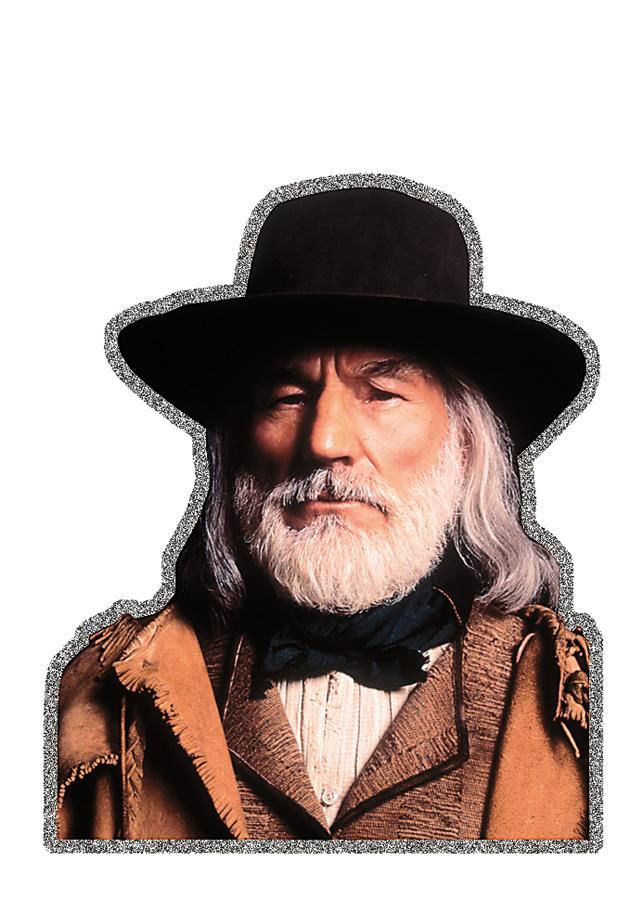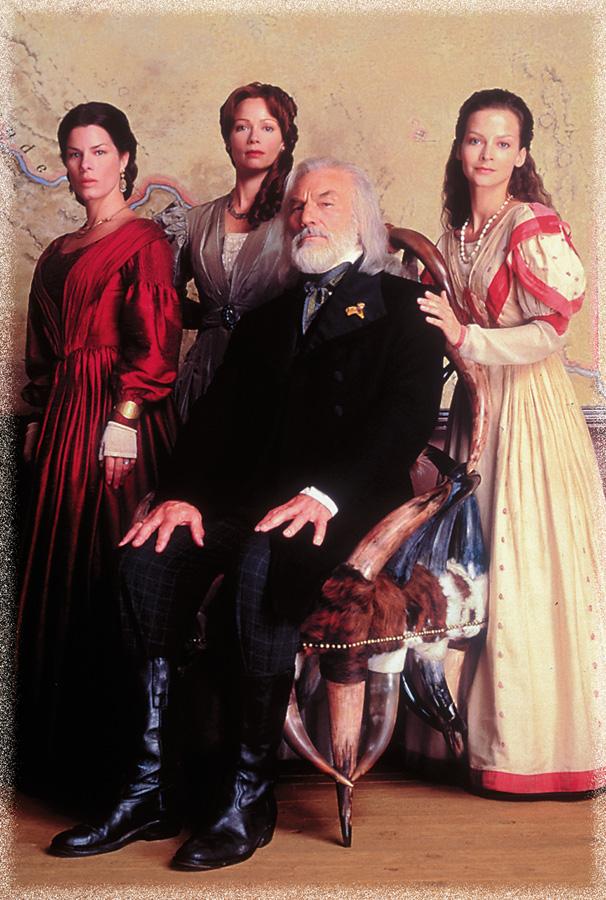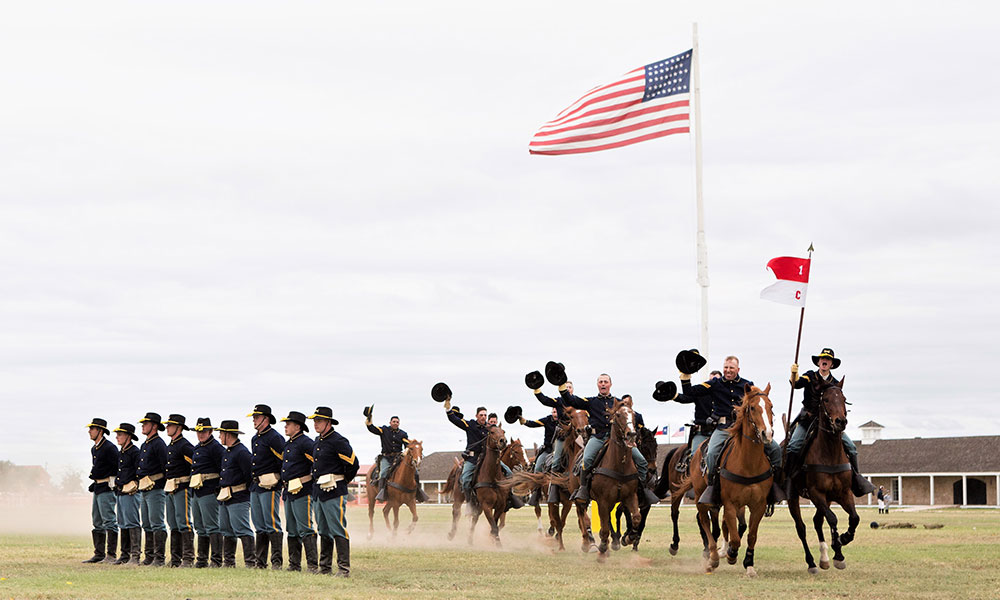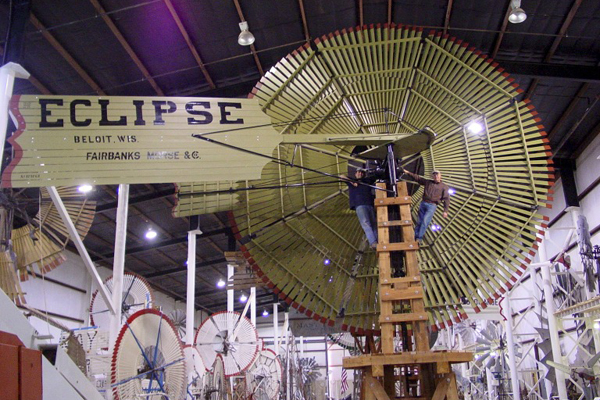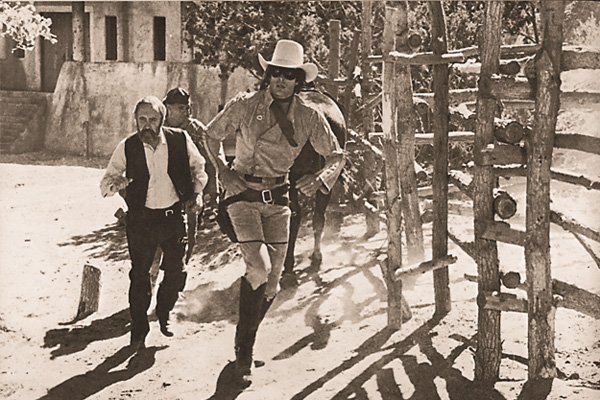 In the new TNT Western movie King of Texas, rancher John Lear has an ego about as big as the newly formed Republic of Texas. He tells his three daughters they must prove their loyalty to get their inheritance—land, a mighty big prize in the 1840s. His youngest daughter, Claudia, won’t play along, so Lear disowns her, and a Texas tragedy is in the making.
In the new TNT Western movie King of Texas, rancher John Lear has an ego about as big as the newly formed Republic of Texas. He tells his three daughters they must prove their loyalty to get their inheritance—land, a mighty big prize in the 1840s. His youngest daughter, Claudia, won’t play along, so Lear disowns her, and a Texas tragedy is in the making.
If this plot sounds familiar, congrats, you just passed British Lit 202. King of Texas retells William Shakespeare’s King Lear—only with a Western twist.
The movie premieres June 2, and sports an impressive cast, including Patrick Stewart as megalomaniac John Lear, Julie Cox as Claudia, Marcia Gay Harden as daughter Susannah, and movie veteran Roy Scheider as neighboring rancher Westover. Stewart is probably best known as Captain Jean-Luc Picard from Star Trek: The Next Generation; Cox had roles in David Copperfield, Dune and Allegra; Harden (Space Cowboys) won an Oscar for her turn in Pollock; and Scheider starred in Jaws, The French Connection and All That Jazz.
Screenwriter Stephen Harrigan gives the movie historical authenticity. His epic novel The Gates of the Alamo was honored last year with both a Western Writers of America Spur Award and a National Cowboy and Western Heritage Museum Western Heritage Award.
“The idea of doing King Lear as a Western was something that Patrick Stewart and the producer, Robert Halmi Sr., cooked up,” Harrigan tells True West. “Halmi first mentioned it to me in London five or six years ago when we were working on a Cleopatra miniseries. At that time, the project was called Boss Lear and Gregory Peck was going to play the title role. A year or so later I had a meeting with Peck and Patrick Stewart at Peck’s house in Los Angeles, in which I proposed setting the movie in Texas in the 1840s, a time and place that had a reasonable affinity to the England of Shakespeare’s play.
“My initial idea was to use the 1842 Mexican invasion of the infant Texas republic as a counterpoint to the French invasion in the play. The first few drafts had its climax at the Battle of the Salado, in which the Texans repelled the Mexican Army. But somewhere along the way budget realities decreed that we would have to bag the Mexican Army and the epic pitched battle, and so we ended up doing something simpler: a confrontation between Lear and his Texans and a dispossessed Mexican ranchero named Menchaca.”
When Peck dropped out, Stewart ended up playing John Lear, a San Jacinto veteran whose son was killed at Goliad and who was a friend of Sam Houston. There are also other aspects in the story conceived from Texas history.
“Rip, Lear’s slave, who is a version of the Fool in Shakespeare’s play, is modeled after Joe, the slave of Alamo commander William Travis and the only known combatant who survived the battle,” Harrigan says. “Shakespeare’s character of Gloucestor has been reinvented in this movie as the man who captured Santa Anna at San Jacinto. I changed Gloucestor’s name to Westover, and had a good time generally substituting familiar Texas names from the period—Highsmith, Tumlinson, Warnell, Menchaca, et. al.—for Shakespeare’s characters. In an early draft, Sam Houston himself even made an appearance, but he succumbed to the inevitable streamlining.”
Shakespeare and the Old West are a natural mix, the Emmy-nominated Stewart says. “It’s never been clear during which period Shakespeare’s King Lear was set.” “There is a sense that it was probably set during a somewhat primitive period. A nation was being formed by ambitious, hungry people. The warring factions were very much in turmoil and could be dragged in any direction by the most powerful groups. I’ve learned that this was certainly the case with the Republic of Texas at this time.”
On the other hand, when Scheider first heard someone planned on making King Lear as a Western, he said, “I thought they were crazy. In my early days, I was a classical actor, so I wondered what they were doing to King Lear. Then Patrick sent me the script and I thought it was pretty good stuff. We don’t have the soaring Shakespearean poetry, but the angst of the story is there, the characters are believable and the setting is believable.”
Actually, moving Shakespeare to the American frontier isn’t new. The Taming of the Shrew has been performed as a Western; the 1954 Spencer Tracy movie Broken Lance had elements of King Lear; and director Anthony Mann (Winchester ’73, The Naked Spur) was planning a King Lear Western when he died in 1967.
“Even Howard Hawks said that Shakespeare’s King Lear could become a wonderful Western,” King of Texas director Uli Edel says, “but it was never done. So I’m very proud that I can do it now with Patrick Stewart. We have a great script and a fantastic cast.”
Of course, the current cast had little experience making Westerns, and German-born Edel may have grown up loving Westerns but his only know-how came when he directed Purgatory—to lukewarm reviews—for TNT.
“I loved being in Mexico,” Edel says, “surrounded by horses and a lot of cowboys. We had hundreds of cattle. It’s just beautiful. The biggest challenge was the wind. We had to fight it every day. Around 4 p.m., the wind came up and we were in a constant dust storm. That makes it hard to see, and it burns your eyes. It was really hard for the whole crew.”
Scheider adds, “This is the first time I’ve been on a horse in a show, and it made me very anxious. But it’s definitely fun. Every American boy wants to be in a Western. The Western accent was a little difficult because it’s not the way I speak. But I worked on it, and hope I didn’t get it wrong.”
A good drama, be it a Western or whatever, needs certain elements to succeed, and Stewart says King of Texas accomplishes that.
“There are personal dramas in the inter-family relationship,” he says, “as well as the racial dramas of the Mexicans, Tejanos and the Texans, that make up a larger political drama in the film. There is even drama between individuals and the elements, such as the great scene in which John Lear and Rip are out on the prairie amid a terrible storm.
“However, I find there is humor, too. There’s a lot of irony, particularly in David Alan Grier’s character, Rip. There are numerous stories that are interwoven throughout this film, perhaps in a way that is a little unusual for a lot of television dramas. TNT is a very appropriate place for this to be. Apart from other things, they’ve also become known for their Westerns. The entire network has been exemplary in supporting our enthusiasm for this drama.”
King of Texas Premiere: Sunday, June 2, 8 p.m. ET/PT on Turner Network Television.
Johnny D. Boggs has seen King Lear performed at Shakespeare in the Park, and has watched Star Trek: The Next Generation in bed.
Photo Gallery
– Photo courtesy of TNT –
– Photo courtesy of TNT –


